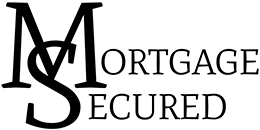Mortgage Blog
Trusted GTA and Southern Ontario Mortgage Solutions
What are Alternative Mortgage Lenders?
August 8, 2024 | Posted by: Gurbinder Sandhu
In the dynamic world of real estate, securing a mortgage can often be daunting, especially for individuals with unique financial situations. This is where alternative mortgage lenders come into play. Unlike traditional banks, alternative lenders offer flexible financing solutions tailored to diverse needs. Borrowers who may need to fit the conventional lending criteria. But what exactly are alternative mortgage lenders, and how do they compare to traditional mortgage options?
Understanding Alternative Mortgage Lenders
Alternative mortgage lenders, also known as private or non-traditional lenders, are financial institutions operating outside traditional banking. They include credit unions, mortgage investment corporations (MICs), private individuals, and specialty finance companies. These lenders cater to borrowers who may have been turned away by conventional banks due to factors like poor credit history, self-employment, or non-traditional income sources.
Pros of Alternative Mortgage Lenders
1. Flexible Lending Criteria: One of the primary advantages of alternative lenders is their willingness to consider a broader range of financial situations. They focus on the overall value of the property and the borrower's equity rather than just their credit score.
2. Speed and Efficiency: Alternative lenders often have streamlined processes, allowing quicker approval and funding than traditional banks. This can be especially advantageous in competitive real estate markets where time is crucial.
3. Tailored Solutions: These lenders offer customized mortgage solutions that can be adapted to suit the borrower's specific needs. Whether a shorter-term loan or a more flexible repayment plan, alternative lenders are more likely to accommodate unique requirements.
4. Access to Equity: Alternative lenders provide a viable option for homeowners looking to tap into their home equity. They often offer home equity loans or lines of credit, which can be helpful for renovations, debt consolidation, or other financial needs.
Cons of Alternative Mortgage Lenders
1. Higher Interest Rates: The flexibility and convenience offered by alternative lenders come at a cost. Interest rates are generally higher than those of conventional mortgages, reflecting the increased risk the lender takes.
2. Shorter Loan Terms: Alternative mortgages often have shorter terms, which can lead to higher monthly payments. Borrowers need to be prepared for the possibility of refinancing sooner than they would with a conventional mortgage.
3. Limited Regulation: Unlike traditional banks, alternative lenders are less heavily regulated. This means borrowers need to exercise due diligence and carefully review the terms and conditions of the loan agreement.
4. Potential for Additional Fees: Alternative lenders may charge additional fees for their services, such as origination fees, broker fees, or higher penalties for late payments. Understanding all the costs involved before committing to a loan is essential.
Comparing Alternative Lenders to Conventional Mortgages
While conventional mortgages remain the go-to option for many homebuyers, they are not always accessible to everyone. Traditional banks have stringent lending criteria, focusing heavily on credit scores, stable income, and employment history. This can exclude self-employed individuals, those with fluctuating incomes, or those who have faced financial setbacks.
In contrast, alternative mortgage lenders offer a lifeline to those who fall outside the conventional parameters. They provide opportunities for homeownership or refinancing that might otherwise be unattainable. However, this flexibility comes with trade-offs, primarily in higher interest rates and shorter loan terms.
Choosing between an alternative lender and a conventional mortgage depends on the borrower's unique circumstances and financial goals. It's crucial to weigh the pros and cons, consider the long-term implications, and seek advice from a qualified mortgage professional to make an informed decision.
Conclusion
Alternative mortgage lenders play a vital role in the Canadian mortgage landscape, offering solutions for borrowers with diverse financial profiles. While they provide greater flexibility and faster approvals, it's essential to be aware of the potential downsides, including higher costs and shorter loan terms. By understanding these factors, borrowers can make the best choice for their needs and achieve their homeownership goals. If you have any questions at all, please make sure to contact us.
Please take a closer look at our service offerings
Mortgage Pre-Approvals
First Time Home Buyers
Mortgage Refinancing
Mortgages for Self-Employed
Get approved for your next
mortgage in 3 easy steps...
1. Find the right mortgage
Get in touch with me today and learn how I can help you
2. Tell me about your needs
Tell me about your goals so I can better understand your mortgage needs.
3. Get Approved
Get pre-approved for your ideal mortgage product and start shopping today!

